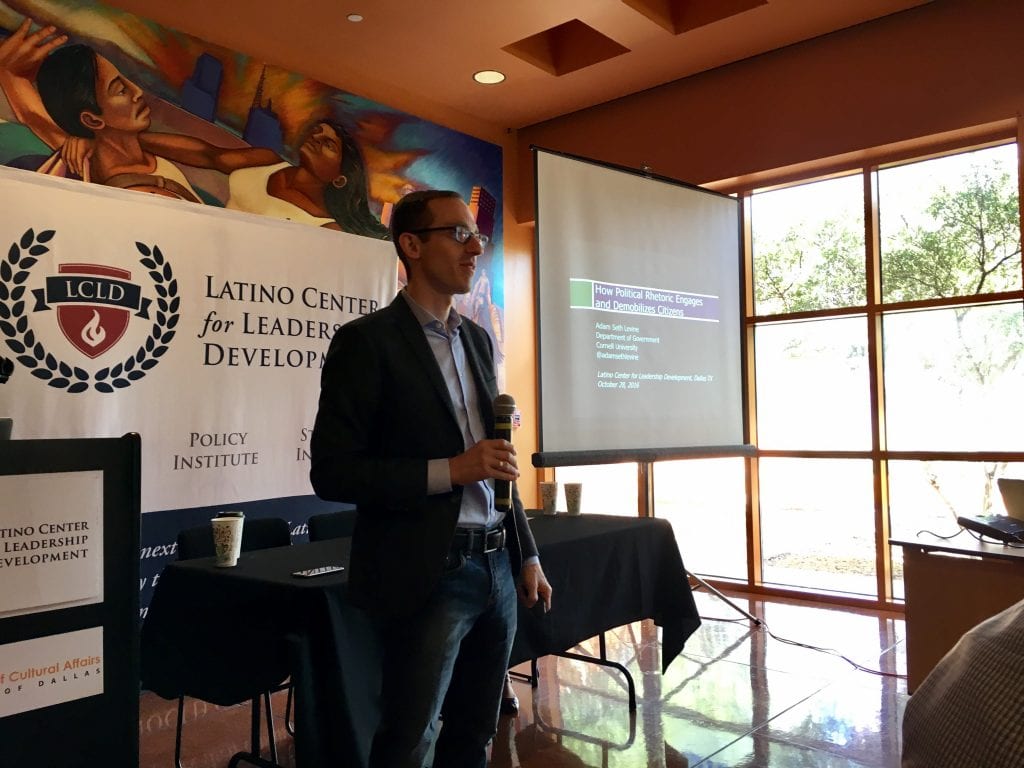Adam Seth Levine, professor of government from Cornell University, gave his talk “How Political Rhetoric Engages and Demobilizes Citizens” at the Tower Center- Latino Center for Leadership and Development joint policy forum Oct. 28.
Conventional wisdom about political rhetoric leads people to believe talking about problems increases engagement. Levine argues that political rhetoric is self-undermining. While it leads to increased concern about problems, it also inflames them and decreases political activism.
He used Republican nominee Donald Trump’s campaign as an example. At the third presidential debate, Trump would not commit to accepting the election results if he loses. He has repeatedly claimed that the election is rigged, and Levine argues that this hurts his campaign.
In his research, Levine found that telling people their voice isn’t being heard, doesn’t make them want to participate. Instead it serves as an anti-Get out the vote effort for Trump.
This theory holds true with other political rhetoric. Talking about economic insecurity in a campaign reduces financial and time donations to causes. “When you tell people they’re poor, they don’t want to spend money on your cause,” Levine said.
